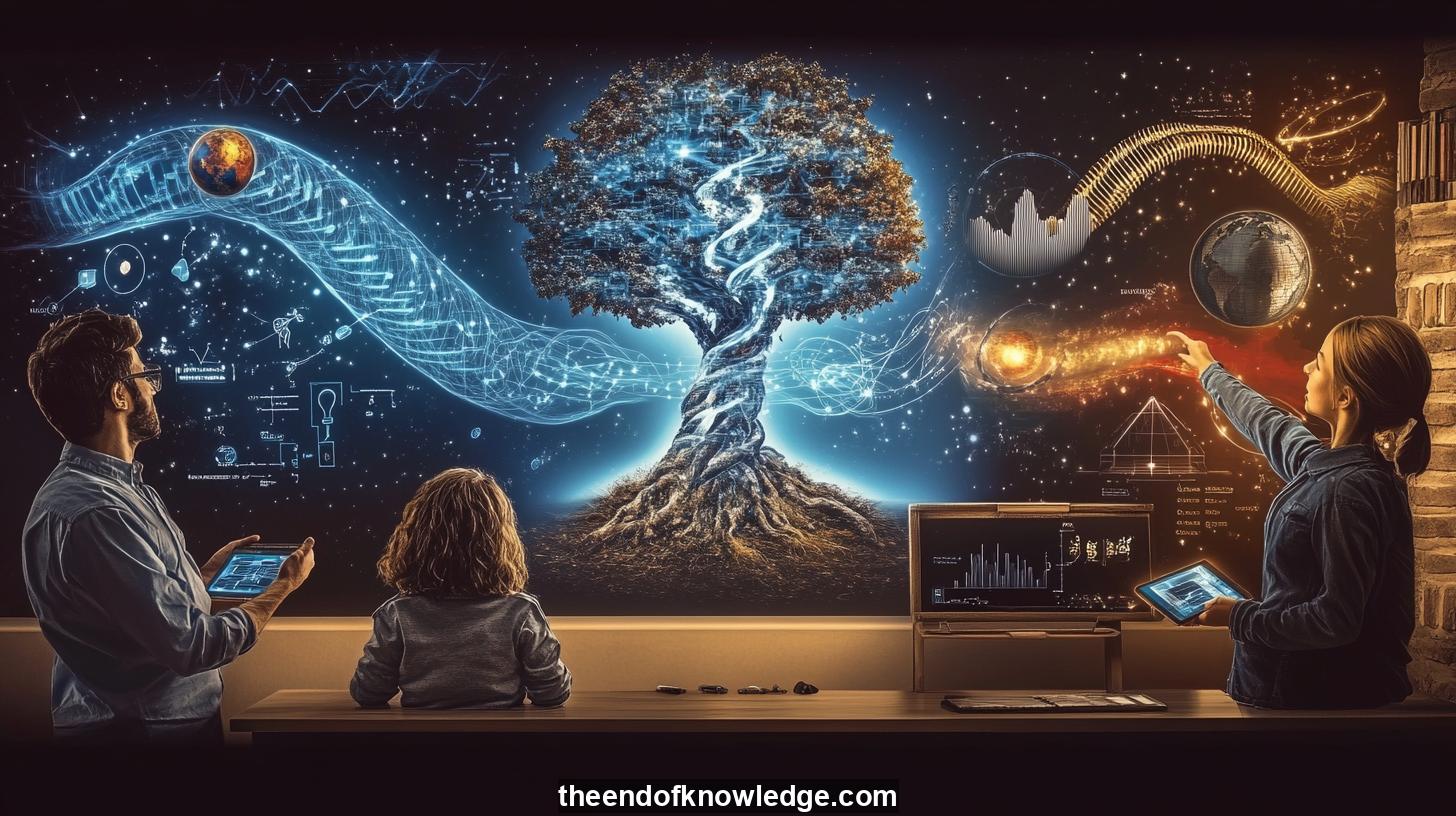 >
>
Concept Graph, Resume & KeyIdeas using DeepSeek R1 :
Resume:
The discussion revolves around the integration of artificial intelligence (AI) in education, highlighting its transformative potential while addressing challenges and ethical considerations. Olga and Juanjo share their experiences, with Olga focusing on AI's role in personalized learning and Juanjo discussing its applications in the health sector. They emphasize the need for educators to adapt, leveraging AI as a tool to enhance teaching rather than replace it. The conversation also touches on the ethical implications, such as privacy concerns and the potential for bias in AI systems. The importance of maintaining human interaction in education is stressed, as AI should complement rather than overshadow the role of teachers. The future of education is seen as a blend of technological advancements and human-centric approaches, aiming to create a more inclusive and effective learning environment.30 Key Ideas:
1.- AI is reshaping education by providing personalized learning experiences.
2.- Educators must adapt to new technologies to remain effective.
3.- AI tools like GPT can assist in content creation and student engagement.
4.- Ethical considerations, such as privacy and bias, must be addressed.
5.- Human interaction remains crucial in education despite AI advancements.
6.- AI can help bridge gaps in access to quality education globally.
7.- The future of education likely involves a mix of AI and human teachers.
8.- AI can enhance student outcomes through tailored learning strategies.
9.- Educators face challenges in integrating AI into traditional curricula.
10.- AI tools can simplify administrative tasks for teachers.
11.- Students may rely on AI for homework and research, raising concerns about learning depth.
12.- AI can facilitate real-time feedback and assessment for students.
13.- The digital divide may worsen if not all students have access to AI tools.
14.- AI can simulate real-world scenarios for immersive learning experiences.
15.- Educators need training to effectively use AI in their classrooms.
16.- AI can help identify learning gaps and provide targeted support.
17.- Ethical AI use in education requires transparency and accountability.
18.- AI-driven analytics can provide insights into student performance trends.
19.- Collaborative efforts between educators and AI developers are essential.
20.- AI can enable lifelong learning by offering continuous skill development.
21.- The role of teachers may evolve into that of facilitators and mentors.
22.- AI can assist in creating personalized learning plans for students.
23.- Cultural and linguistic diversity in AI systems is crucial for global education.
24.- AI can support students with special needs through tailored resources.
25.- Educators must ensure AI tools are used responsibly and ethically.
26.- AI can enhance accessibility for remote or underserved student populations.
27.- The integration of AI in education requires updated policies and regulations.
28.- AI can foster innovation by encouraging creative problem-solving.
29.- Continuous monitoring of AI's impact on education is necessary.
30.- The future of education will depend on balancing technology and human values.
Interviews by Plácido Doménech Espí & Guests - Knowledge Vault built byDavid Vivancos 2025